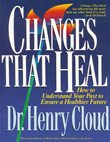I recently went to a wedding of some friends in Fort Worth. The pianist was a good looking young man who provided lovely music as we came into the church, and accompanied the vocalists during the ceremony. At the end of the wedding, as people got up to leave the sanctuary to get to the reception, he played an incredible piece that was ignored by everyone around me. Only a very small handful of us knew that he had recently earned his masters in piano performance from Julliard, and is a concert pianist of the highest caliber. But as an unknown friend of the groom, he was playing in a nondescript church in Fort Worth, Texas, and hundreds of people blew right past the greatness of what he was doing to get to iced tea and punch and cheese and crackers and cake that wouldn’t be cut for another hour.
It reminded me of a similar story that received much more attention. Three years ago, the Washington Post arranged for Joshua Bell, arguably the best violist in the world, to stand in a Metro station playing a priceless Stradivarius for 45 minutes. The point of the experiment was to see if people would recognize greatness, or hurry right past yet another “street musician.”
They didn’t.
Over a thousand people hurried past this master musician as if he weren’t there at all. Seven stood for any length of time to listen and watch. The Post article says,
“A onetime child prodigy, at 39 Joshua Bell has arrived as an internationally acclaimed virtuoso. Three days before he appeared at the Metro station, Bell had filled the house at Boston’s stately Symphony Hall, where merely pretty good seats went for $100. Two weeks later, at the Music Center at Strathmore, in North Bethesda, he would play to a standing-room-only audience so respectful of his artistry that they stifled their coughs until the silence between movements. But on that Friday in January, Joshua Bell was just another mendicant, competing for the attention of busy people on their way to work.” (www.washingtonpost.com/wp-dyn/content/article/2007/04/04/AR2007040401721.html)
Watch the Post’s YouTube video:
A senior curator at the National Gallery offers an interesting perspective on why Joshua Bell’s genius went ignored: if you were to take a piece of great art out of its “this is significant” frame and hang it in a restaurant instead of a museum, all the cues that announce “This is extraordinary; pay attention!” aren’t there.
I think we may be just like those Washington commuters, oblivious to evidences around us of genius, of gifting, of extraordinary, supernatural touches of grace—because the cues aren’t there. God doesn’t give us nametags—frames around the art, if you will—that proclaim:
• World class teacher
• A meal as finely cooked and presented as the best restaurants offer
• Best-ever school crossing guard
• Excellent factory worker
• Supernaturally cheerful and faithful mail delivery person
• Soul-shaping youth pastor
• Greatness in mothering
What greatness in others might you be blowing right by today, unless you ask for God to open your eyes to see it?
This blog post originally appeared at blogs.bible.org/engage/sue_bohlin/blowing_past_greatness on July 20, 2010.
 One of my favorite explanations comes from Dr. Henry Cloud in his book Changes That Heal. He gives a delightful application to one of Jesus’ parables in Luke 13.
One of my favorite explanations comes from Dr. Henry Cloud in his book Changes That Heal. He gives a delightful application to one of Jesus’ parables in Luke 13. Record the results of a “treasure hunt.” Over several years, as I read through the Bible, I drew a box around every name and title of God I found, and then wrote them in the back of my Bible. What a great way to worship Him now, to just read through His names to tell Him how wonderful and magnificent He is!
Record the results of a “treasure hunt.” Over several years, as I read through the Bible, I drew a box around every name and title of God I found, and then wrote them in the back of my Bible. What a great way to worship Him now, to just read through His names to tell Him how wonderful and magnificent He is! 4/79 This Bible itself is an answered prayer. I had been praying for a new NIV when [Dallas radio station] KVIL had a “Take Your Radio to Work” promotion. I sent in four postcards inviting them to visit me at Probe. Sure enough, traffic helicopter reporter Ben Laurie walked in and gave me a $50 bill!
4/79 This Bible itself is an answered prayer. I had been praying for a new NIV when [Dallas radio station] KVIL had a “Take Your Radio to Work” promotion. I sent in four postcards inviting them to visit me at Probe. Sure enough, traffic helicopter reporter Ben Laurie walked in and gave me a $50 bill!